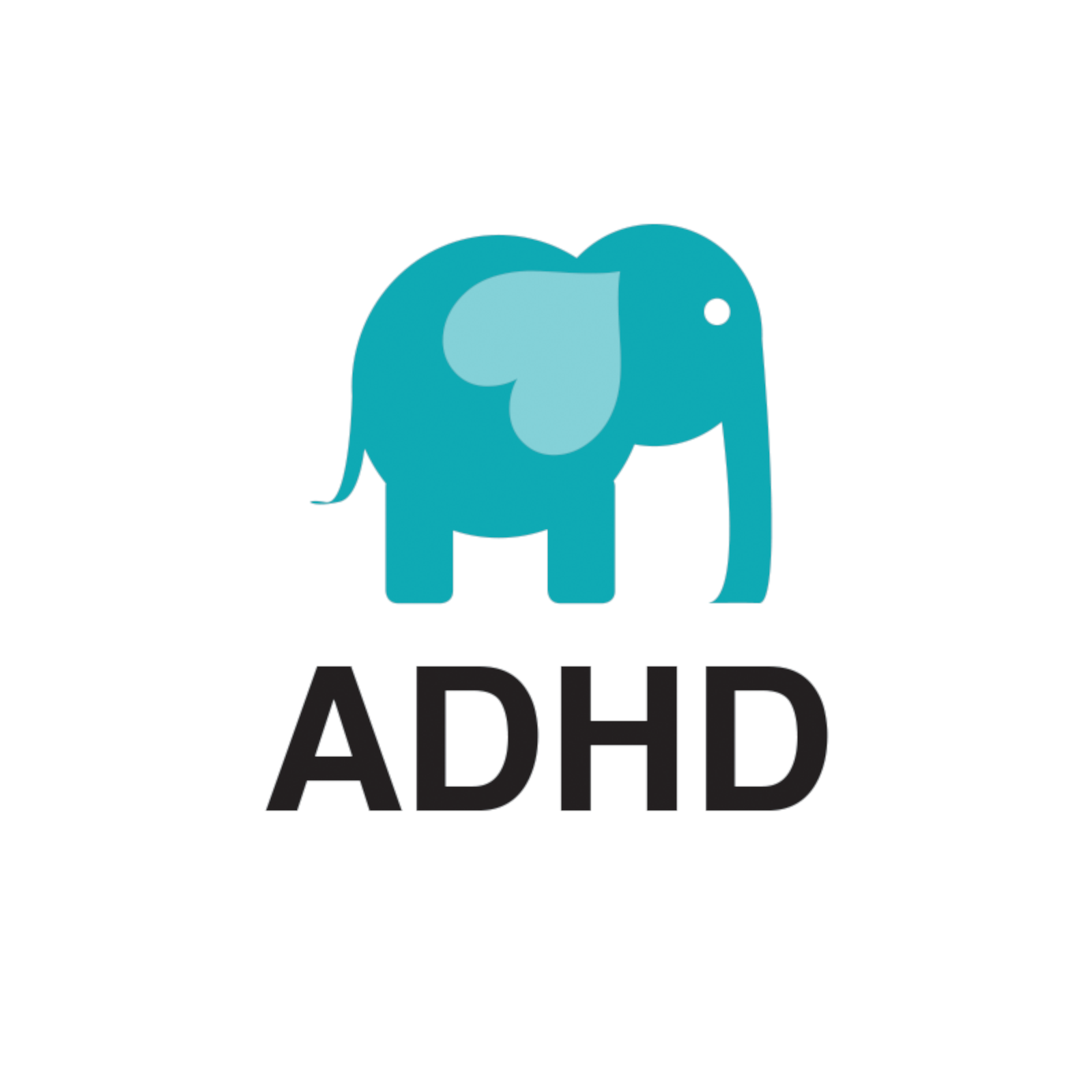
809.3K
Downloads
213
Episodes
Drawing on years of experience working with families, Parenting Coaches Siope Kinikini and Kimber Petersen share how families can improve, heal, and find success using the proven methods of the Teaching-Family Model. Visit smarterparenting.com to learn more.
Episodes
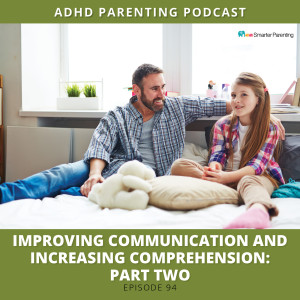
Wednesday Jul 29, 2020
Ep #94: Improving communication and increasing comprehension: Part 2
Wednesday Jul 29, 2020
Wednesday Jul 29, 2020
How do you communicate with a child who doesn’t want to talk? In today’s podcast, ADHD Parenting Coach Siope Kinikini answers what parents can do when experiencing tension in communication.
When our children are having difficulty communicating, it’s our job to help them learn how to do it. Often that requires us to reframe our thoughts on what is happening. It can be easy to take their lack of communication as a personal slight, do not. Instead, see it as an opportunity for growth and understanding.
Children can be resistant to communication because they don’t know how or don’t feel comfortable giving their opinions because they’re afraid of how someone will respond.
Creating a space when they can communicate will be difficult for many parents as they will want to feel that space with their thoughts instead of allowing their children to express themselves. But the best thing you can do is to create this space as it will allow your child to open up and truly express themselves. This podcast will show you the steps you need to take to make this happen as it won't always be easy or natural.
Your child can learn to communicate and do it well.
For full show notes and transcript, visit: https://www.smarterparenting.com/adhd-parenting-podcast/
Sign up for the Smarter Parenting Club https://club.smarterparenting.com/
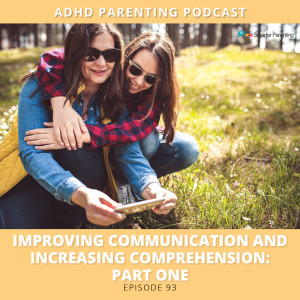
Wednesday Jul 22, 2020
Ep #93: Improving communication and increasing comprehension: Part 1
Wednesday Jul 22, 2020
Wednesday Jul 22, 2020
Most of us communicate to be heard, not necessarily to be understood.
Think about that for a second. Think about how much time and frustration we could reduce if we changed HOW we communicated. We would no longer spend as much time arguing or fighting, and we would see our relationships improve and our kids--and others--would like being around us.
What parent wouldn’t want that?
It’s not easy to change how we communicate. The behavior skill of Effective Communication gives parents the steps they need to communicate in a way that allows for comprehension.
This is so so important. When someone feels genuinely listened to and heard, they are more likely to open up about issues, come to you for advice, and seek solutions.
Comprehension doesn’t mean that your child will always agree with what is being said, but they will understand why something is in place.
When everybody feels heard and understood, incredible things happen.
Learn the skill: https://www.smarterparenting.com/skills/effective-communication/
For full show notes and transcript visit: https://www.smarterparenting.com/adhd-parenting-podcast/
Sign up for the Smarter Parenting Club and let Siope Kinikini help you improve your communication. https://www.smarterparenting.com/coaching/
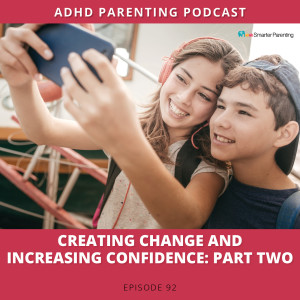
Wednesday Jul 15, 2020
Ep #92: Creating change and increasing confidence: Part 2
Wednesday Jul 15, 2020
Wednesday Jul 15, 2020
In this episode, we continue our discussion on how Role-playing creates change and increases confidence in children and adults. If you haven’t listened to Part 1, we recommend you go back to episode 91.
https://adhd.smarterparenting.com/e/ep-91-creating-change-while-increasing-confidence-part-1/
All of us have biases based on our life experiences. These biases can make it hard for us to see another person’s viewpoint, which can hinder communication. One of the benefits of Role-playing is that it allows us to feel empathy for another person which helps us break down our biases. By understanding where someone is coming from, we can focus on building better relationships as we can improve and positively address things. This is especially important for helping your child with ADHD as they tend to see the world differently, and understanding how they see it goes a long way to understanding and finding solutions.
These biases also come into play in how we process the good or bad that someone is experiencing. When good things happen, we believe that it’s because of something we’ve done, and when bad things happen, it’s due to external forces.
Using Role-playing to increase empathy and understanding will have a ripple effect on your family and your relationships. If you are unsure how to use Role-playing, we hope you will join the Smarter Parenting Club where Siope Kinikini will be able to walk you through Role-playing and what you need to do to help your family find success. https://club.smarterparenting.com/
For show notes and transcript visit: https://www.smarterparenting.com/adhd-parenting-podcast/
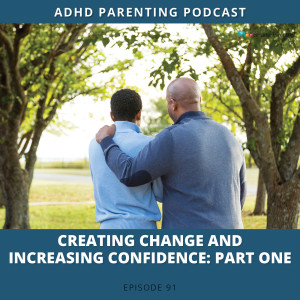
Wednesday Jul 08, 2020
Ep #91: Creating change and increasing confidence: Part 1
Wednesday Jul 08, 2020
Wednesday Jul 08, 2020
Let Siope Kinikini help you find solutions and create success. Join the Smarter Parenting Club!
https://club.smarterparenting.com/
Have you ever expected your kid to behave a certain way and then got frustrated when they didn’t?
We have.
Just because you know what to do at a restaurant or greet someone, doesn’t mean that they do. Kids act up because they don’t know how to act. If you want them to behave a certain way, they need to be shown how, and they need to practice.
It’s why Role-playing is so helpful for children. Role-playing allows them to know what is expected and helps them practice until they feel comfortable doing it. Feeling prepared will increase their confidence and reduce feelings of anxiety or frustration.
We can teach behavior skills on Smarter Parenting, but without Role-playing, they won’t be successful.
In part one of our podcast on Role-playing, Parenting Coaching Siope Kinkini helps parents understand three benefits children will gain when using role-playing.
The first benefit is that they will gain an understanding of social situations and how to respond. They will know the difference in interacting with friends versus interacting with a teacher.
Second, they will learn what vocabulary to use in different situations. The words we use will be different when talking to our friends’ verses when we speak to a teacher or a boss.
Lastly, it will teach them empathy and understanding. When a child can see things from the other person’s point of view, they are more likely to create solutions that benefit both sides.
Role-playing is so powerful. We can’t wait for your family to use it and harness its power.
In the Smarter Parenting Club we walk you through making Role-plays successful. https://club.smarterparenting.com/
For full show notes and transcript visit: https://www.smarterparenting.com/adhd-parenting-podcast/
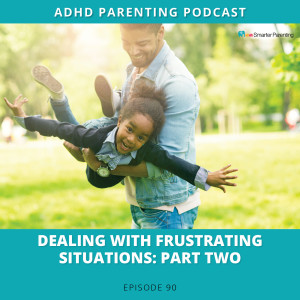
Wednesday Jul 01, 2020
Ep #90: Dealing with frustrating situations: Part 2
Wednesday Jul 01, 2020
Wednesday Jul 01, 2020
Join the Smarter Parenting Club and let us help you better respond to frustrating situations.
When parents are dealing with frustrating situations, their ability to make decisions is reduced. In today’s podcast, ADHD Parenting Coach Siope Kinikini shares with parents how to use Observe and Describe to minimize decision fatigue.
We all have the same amount of energy to spend on making decisions. As the day goes own, we have less energy to spend on decisions, creating decision fatigue. This decision fatigue is especially true for a child with ADHD, as the choices they make throughout the day require more energy.
How can Observe and Describe help? Observe and Describe takes that decision-making equation out of a situation. Knowing that you will be using Observe and Describe is one less decision you need to make, which allows you to spend the energy where it’s needed.
Observe and Describe is excellent for allowing parents to take a step back and focus on what is happening while giving them a moment to make the best decision about the situation instead of just reacting.
For complete show notes and transcript visit: https://www.smarterparenting.com/skills/observe-and-describe/
If you need help with implementing Observe and Describe, join the Smarter Parenting Club.
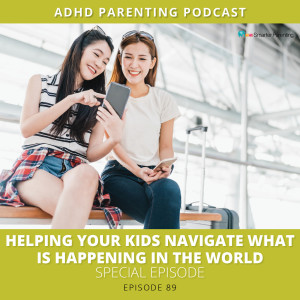
Wednesday Jun 24, 2020
Ep #89: Special episode-Helping your kids navigate what is happening in the world
Wednesday Jun 24, 2020
Wednesday Jun 24, 2020
In this special episode, Siope Kinikini discusses how parents can help their children navigate what is happening in the world.
Giving your kids the tools they need to handle what they are hearing, seeing, and experiencing is vital. When kids have tools, they can thrive and make a difference, despite what is happening around them. These tools will be one of the most important things you can do as a parent.
Children will have a lot of feelings about what is going on and the skill of Effective Communication allows them to process and express those feelings in a healthy way. Siope Kinikini gives you three essential things to do that will make this communication effective and powerful.
Take a listen. And then listen again and again and involve your kids.
For full show notes and more information about Effective Communication, visit https://www.smarterparenting.com/adhd-parenting-podcast/
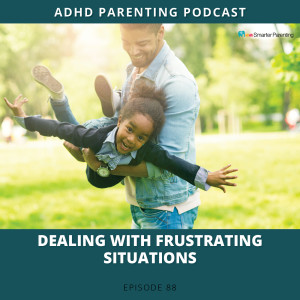
Wednesday Jun 17, 2020
Ep #88: Dealing with frustrating situations
Wednesday Jun 17, 2020
Wednesday Jun 17, 2020
It’s never been easier to get parenting help from the comfort of your own home. Join the Smarter Parenting Club and let Siope Kinikini help you find solutions. https://club.smarterparenting.com/
When dealing with frustrating situations where our kids misbehave, it can be easy to become emotionally engaged and default to yelling, annoyance, or anger. When we respond that way, it only makes the situation worse and often creates additional problems.
Wouldn’t you like something that would keep you from becoming engaged in that way? What if we told you a simple skill could help?
The skill of Observe and Describe is something that you can do today. Instead of engaging in your child’s negative behavior, you observe what is happening and calmly state what you see without judgment. For example, if your child is rolling their eyes and making faces at you, you would say, “You are rolling your eyes and making faces at me.” When you state just the facts, it allows your child to understand what they are doing. It also keeps you from getting emotional.
Remaining calm allows you to lead the dance instead of reacting to the situation. How powerful is that? Powerful. By changing how we respond to situations, we change the outcome and improve our relationships.
We teach our kids that there is a better way to respond that doesn’t have to be driven by emotions.
Observe and Describe can be used on everybody we have interactions with.
You can find the skill on the Smarter Parenting website. https://www.smarterparenting.com/skills/observe-and-describe/
For full show notes and transcript visit: https://www.smarterparenting.com/adhd-parenting-podcast/
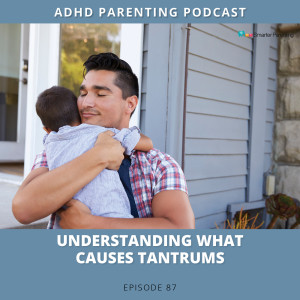
Wednesday Jun 10, 2020
Ep #87: Understanding what causes tantrums
Wednesday Jun 10, 2020
Wednesday Jun 10, 2020
Struggling to figure out why kids act the way they do? Join the Smarter Parenting Club. These Parenting Coaching sessions are a safe place where you will get answers.
https://club.smarterparenting.com/
In today’s episode, Parenting Coach Siope Kinikini continues the discussion of The ABC’s of Behavior and how it can help you create a happier family life.
When you can understand why behavior happens, it is easier to take steps to prevent it. Sometimes though, it can be hard to figure out why behavior happens. In those cases, Siope Kinikini recommends looking at five things that could have contributed to the meltdown.
Are they sleepy? Are they getting enough good sleep?
Are they hungry? Are they eating a healthy diet?
Do they have a disability?
Was there a change in their environment?
Was there an interruption to their schedule?
Understanding that these things could lead to tantrums allows you to make changes before the tantrums even happen.
If they’re tired, you could have them do quiet time, nap, or watch a TV show. If they are hungry, you could give them a snack and set up a snack schedule. If they have a hard time processing things due to a disability, you could provide them with space and understanding that allows them not to become overwhelmed. If there is a change in the environment, you can acknowledge that it can be difficult and help prepare them before changes happen. If there’s an interruption to the schedule, you can reduce interruptions, set a timer for transitions, or finish certain tasks.
All of these things take less work and energy than dealing with a tantrum once it’s begun and allows you to have the energy to spend on creating a relationship. If you’re not spending as much time dealing with tantrums, you can play a game, or read a book, or go out with friends.
The ABC’s of Behavior is incredibly powerful in helping you understand your child. It’s even more powerful when applied to yourself. You can use the ABC’s of Behavior to determine how you react to certain behaviors and what you can do to change it, you will be happier and more in control of situations.
Applying the ABC’s of Behavior to ourselves can be uncomfortable. If you are struggling to figure out your antecedents, join the Smarter Parenting Club. Our coaching sessions are a judgment-free zone where we help you figure out individual solutions.
https://club.smarterparenting.com/
For complete show notes and transcript visit https://www.smarterparenting.com/adhd-parenting-podcast/
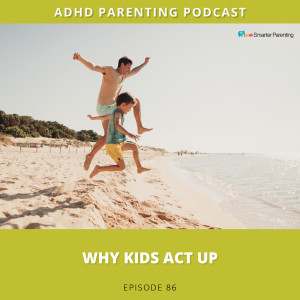
Wednesday Jun 03, 2020
Ep #86: Why kids act up
Wednesday Jun 03, 2020
Wednesday Jun 03, 2020
We want to answer your parenting questions! Join the Smarter Parenting Club.
https://club.smarterparenting.com/
Do you know why your kid acts up? Understanding why they do allows you to intervene and address behaviors beforehand.
When our kids act up, we become so focused on the behavior and outcome that we often forget that something happened before the behavior to cause it.
Are they tired? Are they worried? Are they hungry? Was someone being mean?
Being able to focus on things that happen beforehand and addressing them is incredibly powerful. It sends a message to our child that we care about figuring out what is happening in their life and not just about punishing them.
The way to figure out what happened that contributes to a behavior is by using the ABC’s of Behavior.
The A stands for antecedent. This is what happened beforehand that contributed to the behavior. There can be multiple antecedents that contribute to specific behavior.
The B stands for behavior. This is the behavior your child is doing. This behavior can be good or bad.
The C stands for consequence. The consequence is what happens after the behavior.
Sometimes the antecedent may be clear, like when their sibling takes their toys. In other situations, it may not be so obvious. An antecedent can happen hours or even days beforehand. There can also be multiple antecedents that contribute to a behavior.
The more you can focus on addressing antecedents, the more behavior will decrease. For example, if you know that your child refuses to do their homework when they are hungry, you can easily prevent the issue by making sure they have a snack before beginning.
Using the ABC’s of Behavior will make your life easier. In general, it takes less work to address behaviors in the antecedent stage than in the consequence stage.
Join the Smarter Parenting Club where we can help you figure out antecedents and how you can address and prevent them.
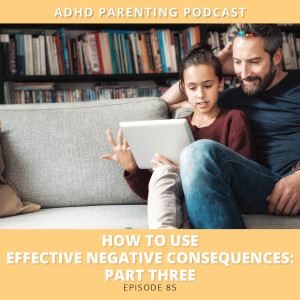
Wednesday May 27, 2020
Ep #85: How to use Effective Negative Consequences: Part 3
Wednesday May 27, 2020
Wednesday May 27, 2020
Let us help you figure out how to use Effective Negative Consequences—join the Smarter Parenting club.
https://club.smarterparenting.com/
Figuring out how to give Effective Negative Consequences can be tricky as many parents struggle with implementing all five elements that make a consequence successful.
The goal of a consequence is to teach them what they should have done instead and to encourage them not to repeat the negative behavior.
Consequences are only so successful and should not be a parent's sole focus when it comes to changing behavior. Parents that focus exclusively on consequences will damage their relationship with their child long-term.
In addition to consequences, parents should be looking for ways to acknowledge and increase positive behaviors. Focusing on the good can be hard for so many parents because when our children are misbehaving it’s hard to recognize that they are doing anything right. Or we feel that by rewarding them instead of punishing them, they will not learn their lesson.
Using Effective Positive Rewards in conjunction with Effective Negative Consequences allows for positive and sustainable change as kids tend to be more motivated by positive interactions than negative interactions.
Effective Negative Consequences has its place and should be given when the behavior warrants.
Knowing when to use Effective Negative Consequence and Effective Positive Rewards takes some skill and understanding. If you are struggling to figure when to use Effective Negative Consequences or Effective Positive Rewards, sign-up for coaching within the Smarter Parenting Club. During a Parenting Coaching session, we can discuss your unique situation and come up with individualized answers that fit you and your child.
https://club.smarterparenting.com/
For full show notes and transcript visit: https://www.smarterparenting.com/adhd-parenting-podcast/
